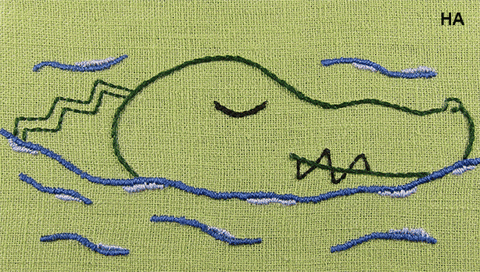Is nature healing?
Plus, a warning for the scientific community
BRAIN WAVES
Au natural. We like to think of the natural world as an antidote to our modern, anxiety-ridden one. But there's a dark side to our fascination with nature, argues philosopher Nicholas E. Low at Aeon. Namely, this fascination often ignores how vulnerable — and edible — we really are. Using the story of environmentalist Val Plumwood’s crocodile attack, Low points out that we are surrounded by forces beyond our control, from tick-borne diseases to algorithms that shape our thoughts. The idea that we can somehow “purify” ourselves from modern life through things like detoxing or unplugging are ultimately futile. As Low puts it, “Eventually, we will all suffer from entanglements with disease, exposure to chemicals and rapacious algorithms, though that suffering will be unevenly borne by the most vulnerable among us.” Well, bummer. So where do we go from here? What does this say about how we should see the world? And most importantly, should I cancel my nature walk? Low points to Nietzsche, who believed that we should move beyond the binary of “good and evil.” Put simply, we should learn to accept reality as it is and find joy in it, even amid its cruelty. “Human exceptionalism drives us to avenge ourselves on predators that attack us. But we cannot avenge ourselves against every species," Low writes.
Milling about. Publishing paper mills are churning out fraudulent scientific papers at an alarming rate. A new study reveals that fake research papers are flooding scientific journals with organizations mass-producing those studies. Researchers analyzed over a million papers and identified networks of 30,000 suspicious studies, finding evidence of large-scale collusion. Plus the team estimates the actual number of fraudulent papers could even be 100 times higher than what's been detected. So what’s to blame? The New York Times reported that as more publishers face intense pressure and limited resources, they're more likely to cut corners and compromise their integrity, even in fields built on trust and truth. Lead author Luís A. Nunes Amaral warned, “If these trends are not stopped, science is going to be destroyed.”
Stay stoic. What does it mean to be stoic? Many of us assume it means you have a stiff upper lip, or that you suppress your emotions. But there’s more to this ancient philosophy than we might think. Listen to learn more.
ON THE HIDDEN BRAIN PODCAST
Radical Kindness: Why do some people risk their own lives to help another person, or give away their fortunes for the benefit of strangers? This week, we talk with psychologist and neuroscientist Abigail Marsh, who studies the science of altruism. We’ll explore what’s known about the brains of people who perform acts of remarkable selflessness, and how the rest of us can learn to be more like them.
ON THE MY UNSUNG HERO PODCAST
Julie Moore’s Story: At a resort in Mexico, Julie flew off a waterslide and hit the water hard. She was starting to lose consciousness when she felt hands grab her and pull.
Don’t forget to send us the story of your unsung hero! Record a voice memo on your phone and email it to myunsunghero@hiddenbrain.org.
HIDDEN BRAIN ON TOUR!
The Hidden Brain tour continues, but we will be wrapping up in just a few short months. Don’t miss your chance to get tickets! Join our host Shankar Vedantam as he brings seven key insights from the first decade of Hidden Brain to the stage. Our final stops:
MIND GAMES
A petri dish hosts a healthy colony of bacteria. Once a minute every bacterium divides into two. The colony was founded by a single cell at noon. At exactly 12:43 (43 minutes later) the petri dish was half full. At what time will the dish be full?
LAST WEEK’S PUZZLE
Is it correct to say, “The yolk of eggs is white” or “The yolk of eggs are white”?
The answer: Neither, the yolk of eggs are yellow.
A MOMENT OF JOY
One small step for baby, one giant leap for outlet covers.
Have an idea for Hidden Brain? A story you want to share with us? Send an email to ideas@hiddenbrain.org. Listen to us on Spotify, Apple, Amazon Music or your favorite podcast platform.



